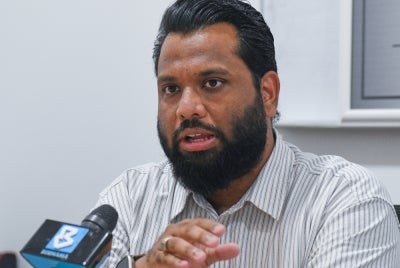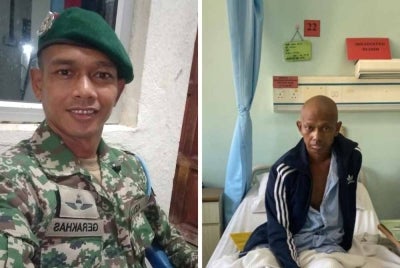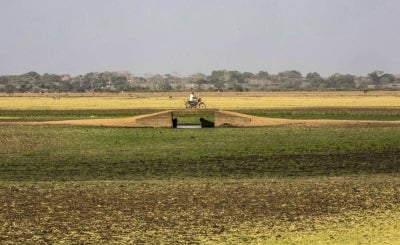Failing to teach, failing to protect: Why teaching children about reproductive rights, body autonomy is important
Education is a form of protection as it would empower children to say "no," to report abuse and to understand their bodies and rights.
WALA ABDUL MUIZ and DANIAL HAKIM
SHAH ALAM - As worrying reports of sexual activities among children continue to surface, experts are warning that Malaysia is failing its children not just by lacking action, but by not equipping them with knowledge about their bodies, rights and safety.
Gender activist Abinaya Mohan said the country’s hesitation to educate children on reproductive rights and bodily autonomy was doing more harm than good.
"What it really shows is that we are failing our children by not educating them about their reproductive rights and bodily autonomy," she told Sinar Daily.
She said conversations about consent needed to go beyond just preventing rape and sexual violence and it should include comprehensive sexuality education aimed at helping children make responsible choices about their body, sexual and reproductive health.
Malaysia, she said must destigmatise sexual education and accept the reality that sexual content is widely accessible online in today’s digital age.
The former Women's Aid Organisation (WAO) advocacy director stressed the need to shift the focus towards teaching children what they needed to know to protect themselves.
"We have many cases of sexual grooming, harassment and hypersexualisation. We can no longer afford to push for abstinence or moral policing of the actions of young children who may not fully understand its consequences.
"Children also have the right to knowledge of bodily autonomy, consent and its consequences on their reproductive health and safety.
"As adults, parents, educators, we must ensure that they are equipped (with this knowledge)," she said.
A call for a national, age-appropriate curriculum
Meanwhile, child activist and Yayasan Chow Kit co-founder Datuk Dr Hartini Zainudin said the way forward lies in a comprehensive, age-appropriate sex and reproductive health curriculum.
One that is developed and implemented nationwide with input from all corners of society, she added.
"We need to involve child protection experts, educators, religious and community leaders and psychologists.
"Start education early, using child-friendly language and methods tailored to each age group," she said when contacted.
She also stressed the importance of preparing teachers and schools to be part of the solution through training, creating support systems in schools to answer questions, responding to disclosures of abuse and identifying warning signs early.
She believed that parents must also be part of the conversation.
"Involve parents through community workshops to build trust and understanding. Ensure equity across states. Children in rural and conservative states should not be left behind," she added.
What non-governmental organisations (NGOs) like WAO and Yayasan Chow Kit can do
Hartini also shared how NGOs can play a role in strengthening the ecosystem:
• Co-develop curriculum content with cultural and local sensitivity.
• Provide training modules for teachers and frontliners.
• Run community outreach to explain the importance of protection-based education.
• Help schools establish reporting protocols and safe spaces for disclosures.
"We advocate for a preventive and rights-based approach, not one focused only on punishment.
"Collaborations must be long-term, community-led and inclusive of state and religious leaders for sustainability," she said.
Education is protection
Hartini was clear on one thing "children are already asking questions. Ignoring them or staying silent doesn’t protect them, it leaves them vulnerable."
She said avoiding those conversations does not protect them and if adults do not provide the answers, someone else will.
She emphasised that education is a form of protection as it would empower children to say "no," to report abuse and to understand their bodies and rights.
She said sex education is not about teaching children how to have sex, but about helping them to stay safe, informed and respected.
"The cost of ignorance is too high, let’s choose protection over fear and knowledge over silence," she said.
Recently, it was reported that Kelantan has seen a worrying surge in sexual offences, particularly involving underage girls, some as young as 10 years old.
State police chief Datuk Mohd Yusoff Mamat said this was based on data collected since last year.
In a media briefing, he revealed that 65 cases of sexual offences, mostly involving rape and incest, were reported in the first three months of this year alone which was more than a 17 per cent increase compared to the 45 cases during the same period last year.
Download Sinar Daily application.Click Here!














